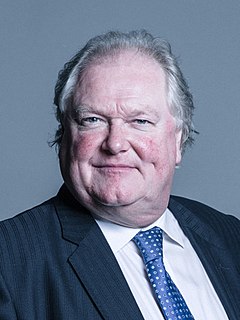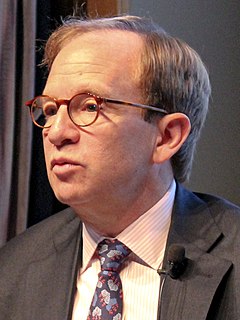A Quote by Andrew Ng
The biggest ethical challenge AI is facing is jobs. You have to reskill your workforce not just to create a wealthier society but a fairer one. A lot of call centre jobs will go away, and a radiologist's job will be transformed.
Related Quotes
I think that solving the job impact of AI will require significant private and public efforts. And I think that many people actually underestimate the impact of AI on jobs. Having said that, I think that if we work on it and provide the skill training needed, then there will be many new jobs created.
Twenty million jobs is what we call for in the Green New Deal, which is essentially a New Deal focused on greening the economy on an emergency basis. So it's 20 million jobs, which are mixed, private sector, nonprofits, government jobs where others will not do the job and will not create the employment.
This is about putting education absolutely in the centre of enterprise and then using the traditions of Birmingham to inspire and grow. If you have knowledge and business linked together you will grow well, you go further down the innovative path and actually you create more and more jobs. Those jobs will only be available for people with skills but they will be real sustainable employments. That is how important innovation is.
Of all the wonderful things government says, that's always been just about my favorite. As opposed to if you get to keep the money. Because what you'll do is go out and bury it in your yard, anything to prevent that money from creating jobs. They never stop saying it.We will say, "This is expected to create x number of jobs." On the other hand, we never say that the money we removed from another part of the economy will kill some jobs.
The idea that you won't have a job is a real fear that people go through, so when people talk about jobs and say, 'I'm gonna create jobs!' or, 'There's gonna be a loss of jobs,' those are just words. But the reality of someone actually losing their job - I mean, it's their entire life for most people in this country.
Our biggest challenge in this digital age that we are entering is how do we effectively begin to train people for the jobs that are going to exist and not have them be stuck on jobs that are going to go away? And this is a big deal. And it requires the businesses of this country to, in my opinion, first of all, demand changes in the education system and also develop innovative, creative ways to have industries train people for the skills that are necessary for the jobs that are coming.
The sooner we switch away from carbon-based fuel and start relying on renewable energy sources available in the United States, the sooner we will grow our economy by creating the millions of new jobs that will come from retrofitting homes and businesses, building smart grids, renewable energy systems and planting trees and all the rest. We need to create a lot of jobs that can't be outsourced.
For example, the supporters of tariffs treat it as self-evident that the creation of jobs is a desirable end, in and of itself, regardless of what the persons employed do. That is clearly wrong. If all we want are jobs, we can create any number--for example, have people dig holes and then fill them up again, or perform other useless tasks. Work is sometimes its own reward. Mostly, however, it is the price we pay to get the things we want. Our real objective is not just jobs but productive jobs--jobs that will mean more goods and services to consume.




































